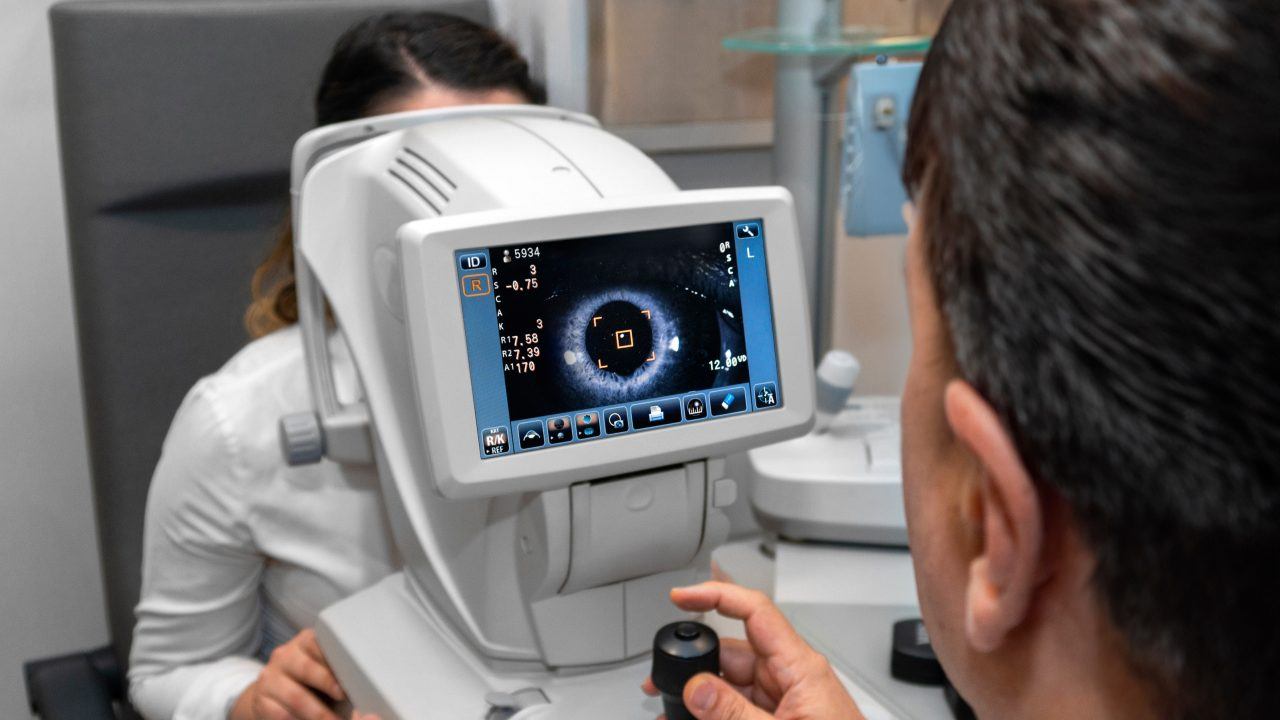A scan which forms part of a routine eye test could help predict a person’s risk of having a heart attack or stroke within the next ten years, a study suggests.
Researchers used artificial intelligence (AI) to analyse digital retinal photographs, which are taken to capture images from the back of the eye to look for certain conditions.
The technology was able to produce personalised risk predictors in less than a second.
It is hoped the simple test could one day be offered alongside blood pressure and cholesterol checks to allow doctors to treat patients earlier.
For the study, published in the journal Cardiovascular Diabetology, researchers at the University of Dundee trialled the AI software on the eye scans of people with type 2 diabetes.
Those with the condition have routine eye tests to check for diabetic retinopathy, a condition where high blood sugar levels damage the blood sugar in the retina.
Dr Ify Mordi, British Heart Foundation research fellow at the University of Dundee and consultant cardiologist, said: “It may be surprising, but the eyes are a window to the heart.
“If there is damage or narrowing of the blood vessels at the back of the eye, there is a good chance that will also be seen in the blood vessels further inside the body, supplying the heart, which could lead to a heart attack or stroke.”
Experts instructed the technology to initially look for warning signs on the images, such as blood vessel narrowing or blockages.
It was then permitted to look for any detail in the photographs, such as the size or arrangement of blood vessels, before being trained using 4,200 images.
The AI tool was able to predict the people who would go on to have “major cardiovascular events”, like heart attacks or strokes, within a decade with 70% accuracy.
Dr Mordi added: “This is a one-stop scan which is routinely performed and takes less than a minute.
“It could be an important part of the package, alongside blood pressure and cholesterol checks, in identifying people who could benefit from medication or lifestyle changes.”
Professor Bryan Williams, chief scientific and medical officer at the British Heart Foundation, said: “The more accurately we can detect someone’s risk of a heart attack or stroke, the better the opportunities to prevent these happening.
“Cutting-edge innovations, like the use of retinal scans alongside health checks, could play a role in improving risk prediction, which is important if we are to reach the British Heart Foundation’s goal to prevent 125,000 heart attacks and strokes in the UK by 2035.
“However, more research is needed to show this prediction accuracy is robust, and to determine the feasibility of incorporating retinal scans into clinical practice.”
Follow STV News on WhatsApp
Scan the QR code on your mobile device for all the latest news from around the country





























